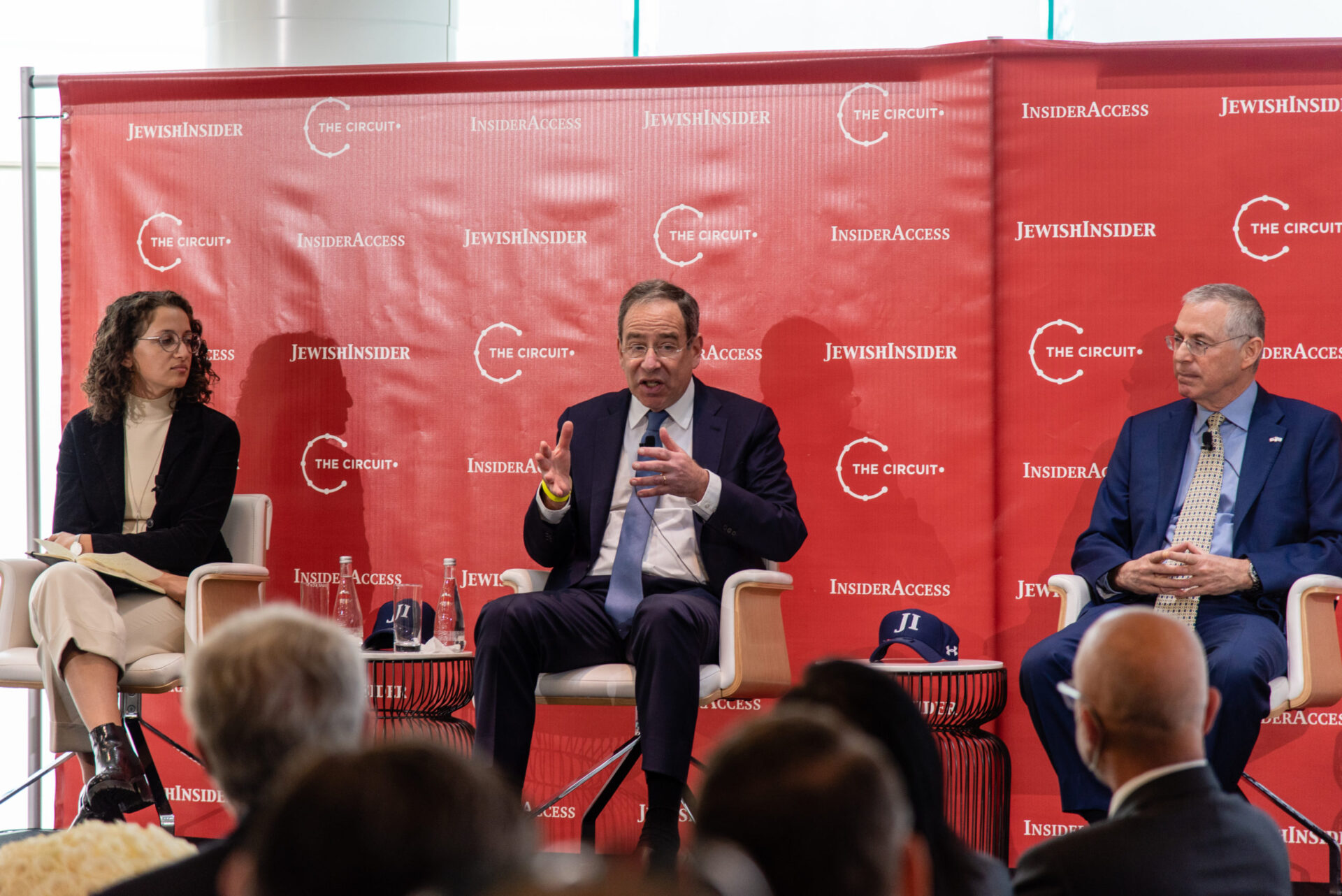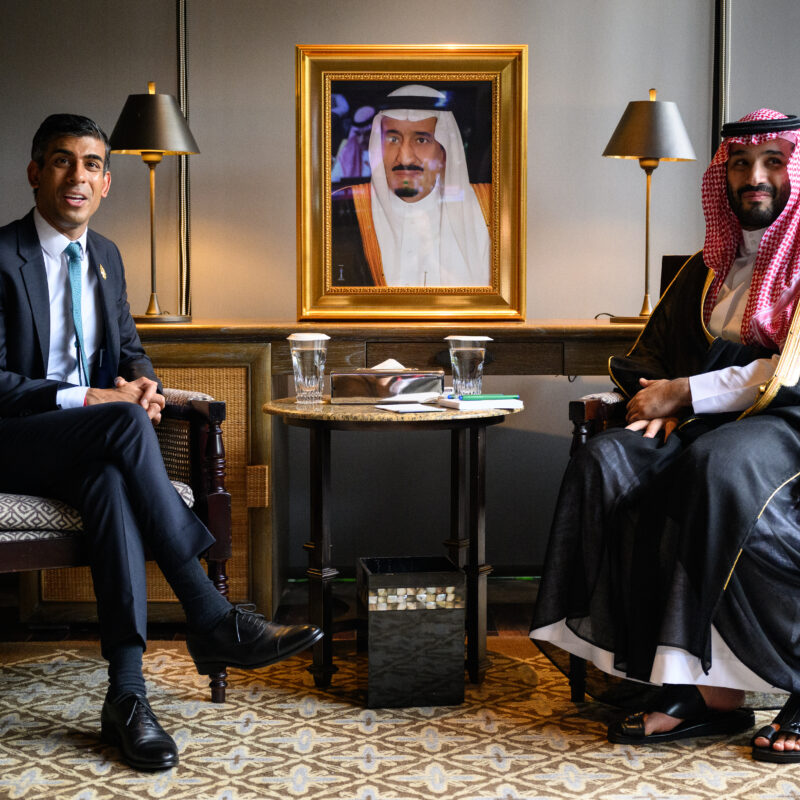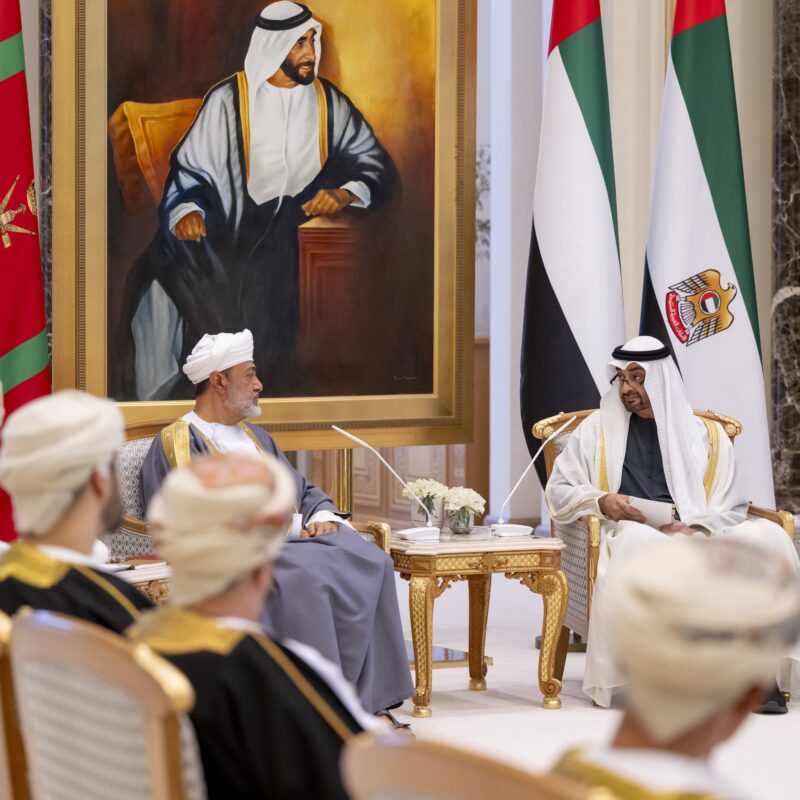Biden hopes to recruit new Arab country for Abraham Accords, Israel envoy says
U.S. Ambassador Tom Nides, in Atlantic Council interview, suggests administration is looking to ‘bring more countries’ into the normalization pact

Hilary Eldridge
U.S. Ambassador to Israel Tom Nides
TEL AVIV –— As President Joe Biden assembles the agenda for his first Middle East visit since taking office, his administration is trying to coax at least one more Arab nation to join the Abraham Accords and normalize relations with Israel, U.S. Ambassador Tom Nides said on Tuesday.
“My job personally is to go deeper with the countries we have, and the [job of the] White House is to go wider and bring more countries into the forum,” Biden’s envoy to Israel said in a webcast from Jerusalem organized by the Atlantic Council, a Washington think tank, and the Jeffrey M. Talpins Foundation.
Nides dodged questions on an Axios report that Biden will fly to Israel in late June and convene a meeting of regional leaders to strengthen and expand the 2020 agreements mediated by the Trump administration in which the United Arab Emirates, Bahrain and Morocco established diplomatic ties with the Jewish state. But Nides indicated that the prospect of brokering new Arab-Israeli relationships is tantalizing for the 79-year-old Biden, who often boasts that he’s met with every Israeli prime minister since his 1973 encounter as a freshman senator with Golda Meir.
“Wouldn’t it be great if Saudi Arabia had normalized relationships with Israel, and Kuwait and the whole region,” said Nides in an interview with Dan Shapiro, the former ambassador to Israel under the Obama administration. Shapiro was recently named a distinguished fellow at the Atlantic Council to work on the “N7” project that was started with Talpins’ sponsorship last year to promote normalization. “You’ve got to create the momentum. Every one of these is difficult to do. Our view is, the more the merrier.”
Nides, who left his post as vice chairman of Morgan Stanley to take over the top job at the embassy in Jerusalem, said dates are still unsettled while advisers grapple with how to make the maiden presidential trip to the Middle East a success. Israeli Prime Minister Naftali Bennett announced after a phone conversation that Biden has accepted his invitation to visit in the coming months.
“Each of these countries wants something from us and we want something from them, and they want something from the Israelis,” Nides said. “This little maneuver is not for the faint-hearted, but I think it’s well worth the time and the energy.”
Nides, a longtime Democratic fundraiser, said he has no hesitation in giving credit to former President Donald Trump for engineering the Abraham Accords. In following up on the previous administration’s achievements, he said Israel’s recent summit in the Negev desert created a “phenomenal opportunity” by bringing together the foreign ministers of the UAE, Bahrain, Morocco and Egypt, as well as U.S. Secretary of State Tony Blinken.
Among his greatest challenges, Nides said, were violent confrontations between Palestinians and Israeli police last month on the Temple Mount in Jerusalem’s Old City, the sacred site revered by Muslims and Jews. He said the rare confluence of the Jewish festival of Passover, the Muslim holy month of Ramadan and the Christian holiday of Easter focused attention on the Israeli-Palestinian conflict and required intense diplomacy to ensure there was no repeat of last year’s violence that led to a missile conflict in May between Israel and Hamas in the Gaza Strip. Nides credited both Bennett and Palestinian Authority President Mahmoud Abbas for preventing the situation from getting out of control.
“To be honest, we were pretty nervous,” Nides said. “We spent a lot of time trying to keep things calm, keeping the Temple Mount calm.”









